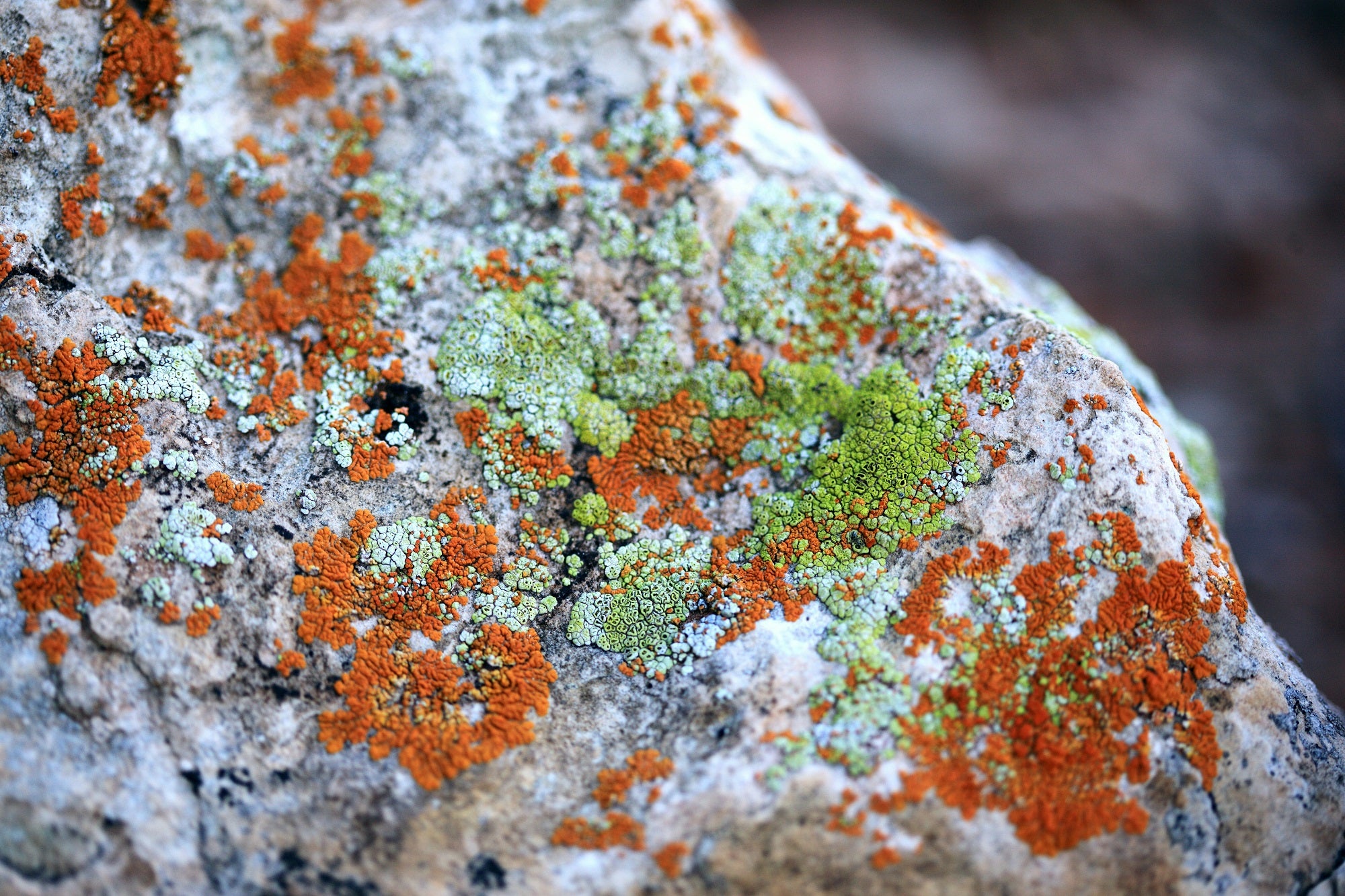
22, February 2024
“Who speaks for Nature?”, introducing our new Nature guardian and why we can all be lichen!
In creating Nature on the Board, we always wanted to create something legally rigorous that took great strides towards a workable, practical way of enshrining the Rights of Nature into corporate law. It’s for that reason that we chose, as Nature’s first guardians, the environmental lawyers who, themselves, created the model for us. Nearly 18 months later, Brontie Ansell of Lawyers for Nature remains as one of those guardians and, as a result, we have a robust, system with solid legal foundations.
But the whole point was always to bring in a much more varied cast of perspectives. The poet laureate, Simon Armitage, recently wrote that all poets should now be speaking up for Nature. Nature on the Board makes that very literally possible. Likewise it opens the door to the wisdom of indigenous people. The passion of environmentalists. The expertise of zoologists. Even the idealism of children.
Ecological Succession
One thing is for sure, whoever speaks for Nature sets the entire tone of Nature on the Board. If Nature’s guardians are lawyers, Nature on the Board has a very legal skew. But if Nature’s guardians are poets, Nature on the Board becomes more poetic.
The reality is that different companies will likely need a different ‘flavour’ of Nature on the Board depending on how far along they are in the process. And so perhaps the question is not ‘Who speaks for Nature?’ but ‘Who needs to speak for Nature now?’
And, as with all things, Nature has probably already figured this out for us. If Nature on the Board’s role is to rewild the boardroom, then perhaps we first need to look at how Nature rewilds an overgrazed, barren field: Ecological Succession.
By way of explainer from TreesForLife:
When the glaciers retreated from the Highland glens at the end of last Ice Age, how did that barren, glacier-scoured wilderness of rock eventually become rich and varied woodland? The answer is succession, the natural process in which communities of vegetation develop and change over time. Lichens play a key role in the early stages of succession, accessing minerals in bare rock and helping to begin the process of creating soil. Mosses and grasses can then get established, along with annual and perennial herbs, then shrubs, pioneer woodland, and after centuries, the ‘climax’ vegetation of mature woodland.
If we take this as our guide, before Nature on the Board can even take root, we all need to be the lichen. Primarily, this is cultural and you might not even know you’re doing it — but if you can nudge your organisation towards a more Nature positive perspective, you are creating the conditions for Nature on the Board to be implemented.
The next guardians are those people already in the business in a position to actually implement Nature on the Board. And following them, those able to actually do it.
For that reason, I believe it’s helpful for the first Nature guardians to be Nature lawyers. They’re the people who ensure the system functions and who do so much of the work nobody else notices like establishing the rules, creating legal spaces for the idea to flourish and keeping the board in check so that the whole thing doesn’t unravel.
And that’s really where we’ve focused our efforts until today. But now comes the next phase. We’ve spent many months asking ‘Who needs to speak for Nature now?’ And what feels like a necessary next step is to make this conversation accessible to everyone at Faith In Nature and its surrounding community. And so our newest Nature guardian is somebody who’s done just that for over twenty years: Dr Juliet Rose, Head of Development at Eden Project.

Juliet’s background is in Plant Science, Horticulture and Strategic Environmental Management Planning for Degraded Land (so is much better placed to speak about Ecological Succession than me!) and, during her time at Eden has developed a variety of projects including overseas conservation, creative community engagement, community-led planning and regeneration. Her current role at Eden includes the development of Eden outreach programmes, the National Wildflower Centre and Eden international projects.
And on top of all that, she’s just generally brilliant. So, in the spirit of giving Nature a voice, over to Juliet…!
Q&A
What’s your background?
My academic background is in plant science, horticulture and ecological restoration, but I have also developed community engagement and training programmes. Working with communities and people in the charitable sector has allowed me to meet some really dedicated and determined people who have set their minds to addressing all sorts of issues and challenges.
I’m also fascinated by small islands. I’ve worked on research and conservation programmes on St Helena in the South Atlantic and the Seychelles. You are much more aware of your limits and resources on small islands. They’re also home to extraordinary plants and creatures that you can find nowhere else – when they’re gone, they’re gone. Small islands show us just how fragile the planet is.
More recently, I’ve been working in Latin America on projects in Colombia and Mexico that combine conservation and community development. These megadiverse countries are really important. Collectively, their biodiversity represent a library of resilience. It’s in everyone’s interest that the rainforests, dry forests, grasslands, mountains, deserts and marine ecosystems are invested in, protected and restored.
Closer to home, much of my work is centred around the Eden Project National Wildflower Centre and our Nature Connection programmes. A strong connection with nature is hugely important to our health and well-being, and nature offers an amazing resource for learning and development for all ages.
Can you tell us about some of your work for the National Wildflower Centre?
The National Wildflower is working to reverse the loss of the UK’s wildflower habitats. Over 95% of the UK’s wildflower meadows were lost in the 20th century. They’re important ecosystems for lots of species, but they also bring colour and texture to our landscapes; they are part of our natural heritage, and everyone should have the chance to experience walking (and even skipping!) through a meadow in full bloom. We don’t just restore wildflower habitats in the countryside – we bring wildflowers to urban communities such as Liverpool, Manchester, Morecambe and Dundee so more people can discover them. We are happiest when out as a group of staff and volunteers seed collecting, sowing, planting and harvesting. It feels like we are actively doing something nature-positive.
There is a science side to what we do, too. The NWC is collaborating on research on plant-pollinator interactions on wildflowers grown on different materials with Exeter University and the genetic integrity of wildflower populations with the Earlham Institute.
We grow seed commercially to support these and other projects, and we launched the Wildflower Bank last year to help landowners create wildflower habitats to achieve Biodiversity Net Gain – an uplift in biodiversity that can be verified, measured and traded, a bit like carbon credits. New legislation in the UK requires new developments to achieve a minimum of 10% Biodiversity Net Gain either onsite as part of a development or offsite via habitat banks that can help to create a nature recovery network across the country.

What are your thoughts on Ecological Succession of the Nature Guardian role? Where do you think we are in the process? (What plant might you be?)
I think this is a great analogy. It reflects the importance of creating and accepting a dynamic and adaptive system – as ecosystems start to develop, species make use of gaps and opportunities, which I think is an important part of the role. Ultimately, each stage supports the next. I think you are at the stage of starting to ‘scrub up’ – structures are in place in the system, and you are starting to diversify and support other species.
Personally, I am a big fan of nitrogen fixers like gorse – I see myself as one of those, adding nutrients that will create the conditions for other species to grow and thrive.
How do you feel about speaking for Nature?
I’m very happy about it. Humans are a dominant species, and with that comes a responsibility to care for more than just ourselves. Even those who don’t feel that responsibility can’t escape their connection to nature. We can’t breathe, eat, or live without nature – it’s fundamental to our own survival as well as being important in its own right.
From your work in overseas conservation, can you see nature on the board going global?
Absolutely. Corporates are global, and so is their impact. We need this initiative to be replicated at scale and at speed. There is a huge global biodiversity funding gap – hundreds of billions of dollars annually– if we are going to move from a situation of being nature-negative to nature-positive, we need to meet that gap by reducing harm and increasing resources, and we need the leadership roles that can deliver this.
Is there anything else you would like to share?
I am incredibly excited about this opportunity to help FIN develop this really innovative work, and I hope what we can achieve together will offer inspiration and encouragement for others. Being pioneer like FIN can be challenging, but it makes it a lot easier for everyone else to follow.
(This is an excerpt from a fuller article on Simeon's blog @ natureontheboard.com)



